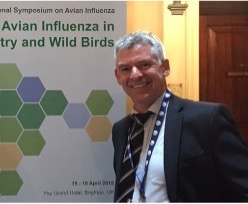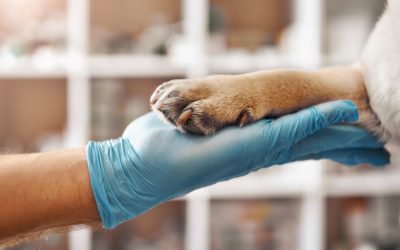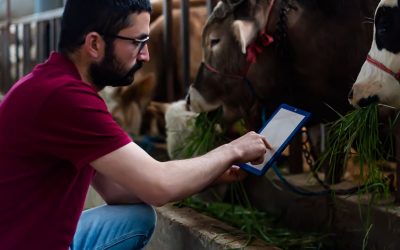APHA team at Weybridge wins Nobel House Prize for avian influenza outbreak response
The Animal and Plant Health Agency team based at Weybridge provided a rapid diagnostic response to the 2021/22 avian influenza outbreak and has been made joint winner of the Nobel House Prize for 2021.
Celebrating high-quality analysis and science
The annual prize was launched in 2019 to celebrate high-quality and impactful analysis and science across the Defra group. It recognises the critical role of high-quality, timely, proportionate, and well-designed and communicated analysis to help support and steer decision-making across the Defra group. The winning team are skilled APHA scientists and diagnosticians primed to respond to incursions of high pathogenicity avian influenza (HPAI). They are trained to work at the highest biosecurity level onsite in the handling of infectious samples. While the prize is awarded for their work during 2021, they continue to use their skills and expertise to support the current outbreak.

Ian Brown, Head of Virology, said:
“I’m really pleased to see the team being recognised for their contribution. The outbreak has and continues to impact teams across the Agency. The work done by all involved has been exceptional under incredibly challenging circumstances. This prize is an opportunity to highlight the achievements of APHA Science to Defra group.”
Innovative approach
The team developed a novel test to confirm the presence of HPAI and enable the Chief Veterinary Officer to make a rapid declaration of HPAI on a premises, saving time in converting temporary control zones into surveillance/protection zones. This enabled field and policy activities to initiate more rapidly, significantly reducing the risk of the spread of disease.
The team also tailored their response to reflect requirements working across the four nations to introduce more streamlined requirements while ensuring international compliance.
As pressures on the field operation increased, the laboratory also undertook an assessment of sample positivity seen on the different swab types taken during disease investigation. They were able to demonstrate that oropharyngeal (OP) swabbing was most sensitive for detection at the flock level and as such only OP swabs are now taken in the field for surveillance activities. This has significantly reduced pressures in the field and enabled financial savings.
Furthermore, through their knowledge of virus/host interface, they were able to recommend a refinement of blood sampling to exclude sampling chickens and turkeys. This meant that technical staff could take samples on the majority of premises, releasing field vets to take blood from waterfowl species as necessary, bringing time and cost savings across the full spectrum of outbreak response.
Finally, the Weybridge team linked rapidly with colleagues at the UK Health Security Agency team in the diagnosis of influenza of avian origin in a human in the UK. This high-profile case led to countless international press releases and global interest. The team imparted its expertise to interrogate the zoonotic risk of HPAI. This work, along with other activities, has been submitted to high-profile scientific journals and as such demonstrates the value and importance of the APHA team, in their efforts to reduce the one health impact from HPAI.
This science programme of work has been strongly complimented by the independent Defra Science Advisory Council.
Well done to all involved!
Due to the strength of nominations for 2021, the prize is shared with the Defra team modelling the spatial implications of land use change. Congratulations also go to their co-winners.
To find out more about APHA Science please subscribe to APHA blog.



